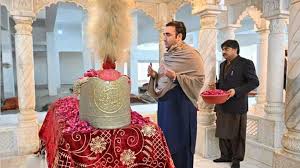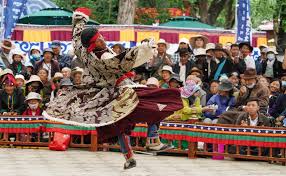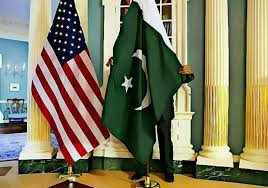National Gender Data Portal to be launched

Islamabad: Lack of reliable, comprehensive and consistent national data that could help decision-makers better understand the situation, assess areas where challenges and gaps persist and undertake appropriate measures to solve them is an important factor that contributes towards the poor status of women in Pakistan.
Trends indicate that, globally, 80 percent of indicators for gender equality across Sustainable Development Goals (SDGs) are lacking data. Pakistan needs comprehensive localized data for effective implementation, monitoring and reporting of international commitments on gender equality including Convention on the Elimination of all Forms of Discrimination Against Women (CEDAW) and SDGs. With the outbreak of the Covid-19 pandemic, it is now critical to have sex-disaggregated data for informed and inclusive response and recovery plans to deal with this global humanitarian crisis.
Realizing the unavailability of centralized gender statistics covering several indicators, National Commission on the Status of Women (NCSW) and UN Women Pakistan have initiated the development of a National Gender Data Portal, the first of its kind in Pakistan, to improve collection, compiling, production and use of standardized data for reporting on the country’s national and international commitments and guiding informed policy actions to improve the lives of women and girls in Pakistan. National University of Sciences and Technology (NUST) has been engaged as the technical partner for developing this data portal which is expected to be launched very soon, said a statement issued by UN Women Pakistan on Wednesday.
In the first meeting of the Technical Review Group held recently, the partners dilated on various aspects and discussed key indicators to be included in the portal. Federal Secretary Ministry of Human Rights Rabiya Javeri Agha, who participated in the virtual meeting, said, “The National Gender Data Portal is a great initiative by NCSW and UN Women Pakistan, which the Ministry of Human Rights fully supports and we look forward to linking this with Human Rights Management Information System, in which we have included all provinces.”
Pakistan stands out with a high degree of gender inequality in terms of opportunities, resources, and facilities available to girls and women, that cuts across all classes, sectors, and regions of the country. Pakistan ranks 151 out of 153 in the latest Gender Gap report developed by the World Economic Forum which highlights the need to address the challenges using evidence-based interventions.
This need has come up time and again for collecting, collating, integrating and disseminating data on gender indicators using dynamic tools that would inform and align policies for targeted interventions. Various streams of datasets exist at the national and provincial levels, these need to be integrated through a comprehensive platform that can generate analysis and reports for guiding policymakers and other stakeholders to advance the gender equality agenda.
Aisha Mukhtar, Country Representative a.i. UN Women Pakistan, highlights the importance of a centralized database: “Gender statistics is not just about sex-disaggregated data. We need gender statistics to highlight areas where progress is made, provide evidence of change and identify gaps that need to be addressed. The National Gender Data Portal is about improving availability and use of gender statistics for policy action.”
The Portal will fill data gaps at a national level, bringing together data from across the country and collating it centrally. It will provide a dynamic platform for data collection and analysis that would be instrumental for improving gender mainstreaming in legislative, policy and programmatic interventions using an evidence-based approach.
Humera Azam Khan, Secretary NCSW, describing lack of standardized data for national and international reporting as well as policy advice as a serious gap, says, “This data portal will help in conducting regular analysis on the status of women in the country. I’m very grateful to UN Women for being our partner in many initiatives including this one, which once completed will be a landmark achievement.”





